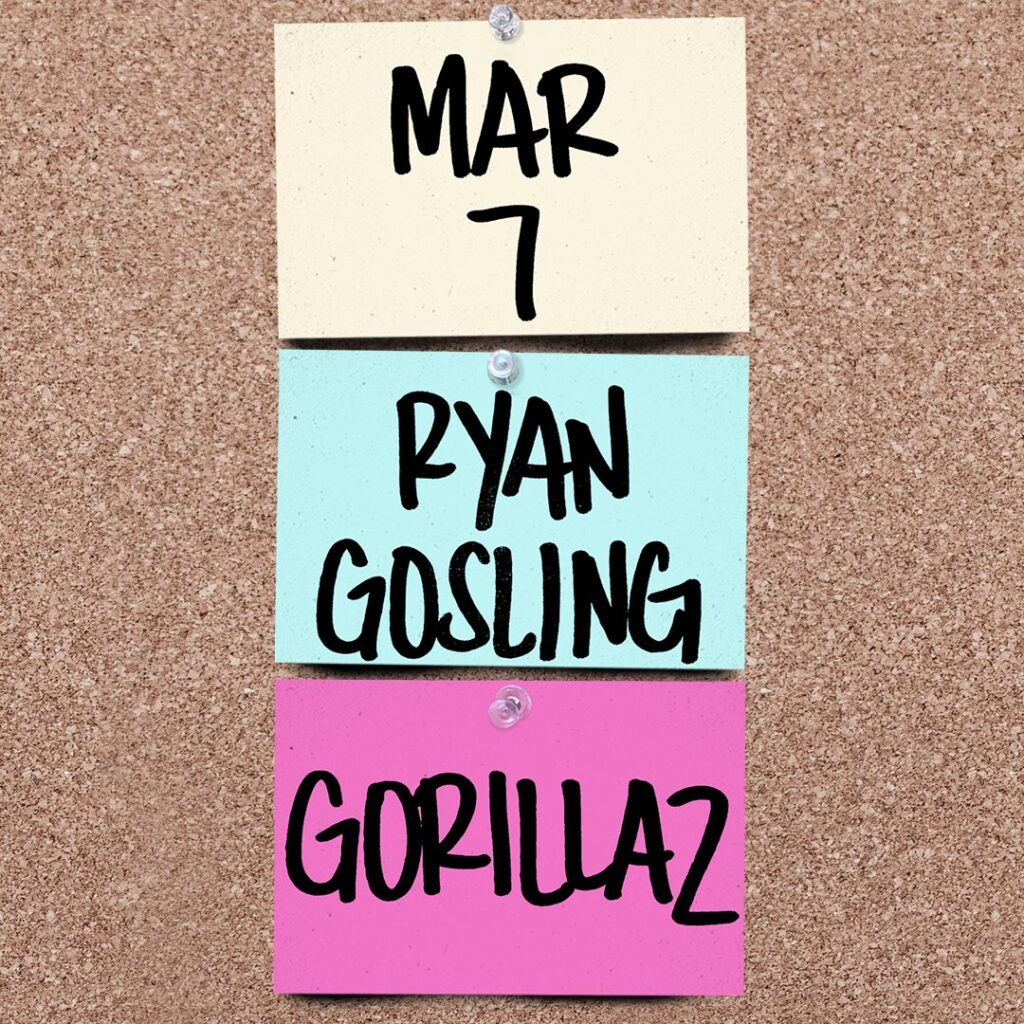
In the waning days of this summer, Geordie Greep unceremoniously announced the end of his feverishly beloved band Black Midi. After initial confusion and suspicion that the trio might just be trolling us, the split was confirmed. Soon after, Greep officially announced his solo debut album. As if to underline the finality of it all, it was boldly titled The New Sound.
Across three albums, Black Midi had already proven themselves particularly restless and unpredictable musical adventurers. Greep’s material, in particular, sharply abandoned any association with the “post-punk” scene that originally begat the band, flitting through an array of old-time-y musical traditions while warping them to fit in Black Midi’s own gonzo world.
On The New Sound, some will hear the former Black Midi member untethered — frenetic, dense arrangements, Latin-tinged prog opuses, precious few concessions to the fans still sticking around hoping for another “953” mosh pit. Initially, The New Sound can feel like the most challenging and baffling work from Greep yet. But soon, it reveals itself to be something different. Free to pursue his ideas entirely on his own terms, all of Greep’s idiosyncrasies start to make more sense together. It’s a vastly ambitious and accomplished album from a musical standpoint, and Greep matches that with a new sense of focus on vocal performance as well as lyrical acuity. These are strange, epic songs, magnifying the confessions of sad, drunk men in late night scenes so that they feel poignant and mythological even when lurid.
The New Sound begins to feel like Greep throwing down the gauntlet. It’s an impressive reintroduction. Ahead of its release, Greep and I caught up via Zoom. As usual, he proved a candid, thoughtful interviewee, his thoughts only serving to further clarify the bizarre but gripping vision he’s presented on The New Sound.
Below, hear new single “Blues” and read excerpts from our conversation.
The album was announced right after this news of Black Midi’s conclusion. How far back do these songs date? Do they go back to when the band was more functional or were they gestating as “This is my way out”?
GEORDIE GREEP: In a way, both. It was something that was a mounting priority. Some of the songs date to immediately after the third Black Midi album came out. I do like being busy and trying to do as much as possible. I want to keep doing an album every year. I missed one last year, but that’s alright, we’ll come back.
As time went on, it became clear to me as you get older you get more honest with yourself about what you want rather than trying to please everyone. I thought, you know what, I think this is the best thing for me, my life, the future. Not just next year, but the next 20. I was trying to set up, as best as possible, what I wanted to do ultimately. And ultimately, doing the band was good, but I knew it wasn’t what I wanted to do forever. I wanted a particular kind of musical experience. In the back of my mind, it was always: “Let’s get this album going.”
After Hellfire, was there a fourth Black Midi album coming together, and you were feeling pulled in this direction instead?
GREEP: The songs we were working on together weren’t coming together in a way that was that satisfying. These songs I had, I felt like they wouldn’t necessarily lend themselves to being played by the band, both in terms of the instrumentation and… take a song like “Holy, Holy,” right? It’s going to be a hard task to convince anyone else it’s a good idea. Even to convince myself it was a good idea, I had to really psych myself up. “It’ll be OK, people will like it.” Now it’s come out and done well, which is cool. But it was like, “Oh, man, if this comes off wrong, it’s bad news.” In working with the band, there would’ve been a compromise, and it would’ve ended up with the song weaker. Everyone always says, “Oh I know what to do,” and it’s often not true. But if there’s any case where having a one-track vision and an uncompromising approach, I think it definitely paid off in that song.
It seems like that song could be divisive in the sense that some people would be like, “This extends logically from some elements of Black Midi, and I’m excited to see where he’s going,” while others might be like, “Oh wow, it’s all the weirdest parts of Black Midi run amok.” I actually feel like everything on this new record is very fluid, as opposed to some of the hard aggressive jumps in Black Midi’s last two records. Having talked to you before, I know you guys sometimes had a bit of glee in confounding people’s expectations. Were you expecting people to embrace that or react a certain kind of way?
GREEP: I’ve heard it 300 times, and I still like it, but it’s hard to see the forest for the trees at that point. You have to be careful with that subject matter, and there’s musically a lot going on. It could easily go into at best muzak and at worst a piece of crap. There’s always this thing of, “Maybe I’m totally wrong.” Maybe I’ve heard it too much, lost touch, gone mental. That’s the psyching up part. I was into it, I liked it.
In terms of the expectations from previous Black Midi stuff… it’s kind of cool either way. Whether people say, “He’s totally gone nuts,” or… with this album, it feels more consistent in my head. It’s going down crazy avenues and doing all this silly stuff, but there’s a lot more grooves. There’s a lot more, “This song is this song and it’s five minutes.” That whole jumping around thing we did [in Black Midi] was a perfectly fine musical technique. But I think in the way we were doing it was maybe emblematic of a youthful insecurity. “We can do a ballad, but let’s put this crazy sound effect on it.” There always had to be a caveat or a slightly ironic thing. Not necessarily consciously, but from my point of view I can see that was my approach sometimes.
The main thing [with The New Sound] was one idea per song. It was a lot more structured. What it boils down to is getting to “I believe in this song, so I’m not going to overcomplicate it.” I don’t have to put all those things to make it “more interesting” in case someone gets bored.
In other conversations, I’d sometimes get the sense you guys would dismiss the first record in favor of what came after. A sort of “Now we’re really getting to what we want to do.” Sometimes people just look back and say this project succeeded or failed here. Do you still like the work you did with Black Midi or do you feel completely disconnected from it now?
GREEP: I think those albums are great, to be honest. I’m happy with them. They came together well. Looking back on the last 10 years of music, they do have their own thing going on compared to a lot of other music — whether you like them or not, or whether I like them or not. Especially given our age and being in a band with lots of big personalities, the fact that we did three albums that are even OK is an achievement. The fact that they’re quite good is great.
I’ve grown to accept that every album I do I’ll probably say, “This is the first real one, this is actually what I’m listening to.” But that’s the right attitude to have. Why did you make something you like as much as the last thing? I think it’s a good sign if you think it’s way better and it’s all over-the-top hyperbole.



